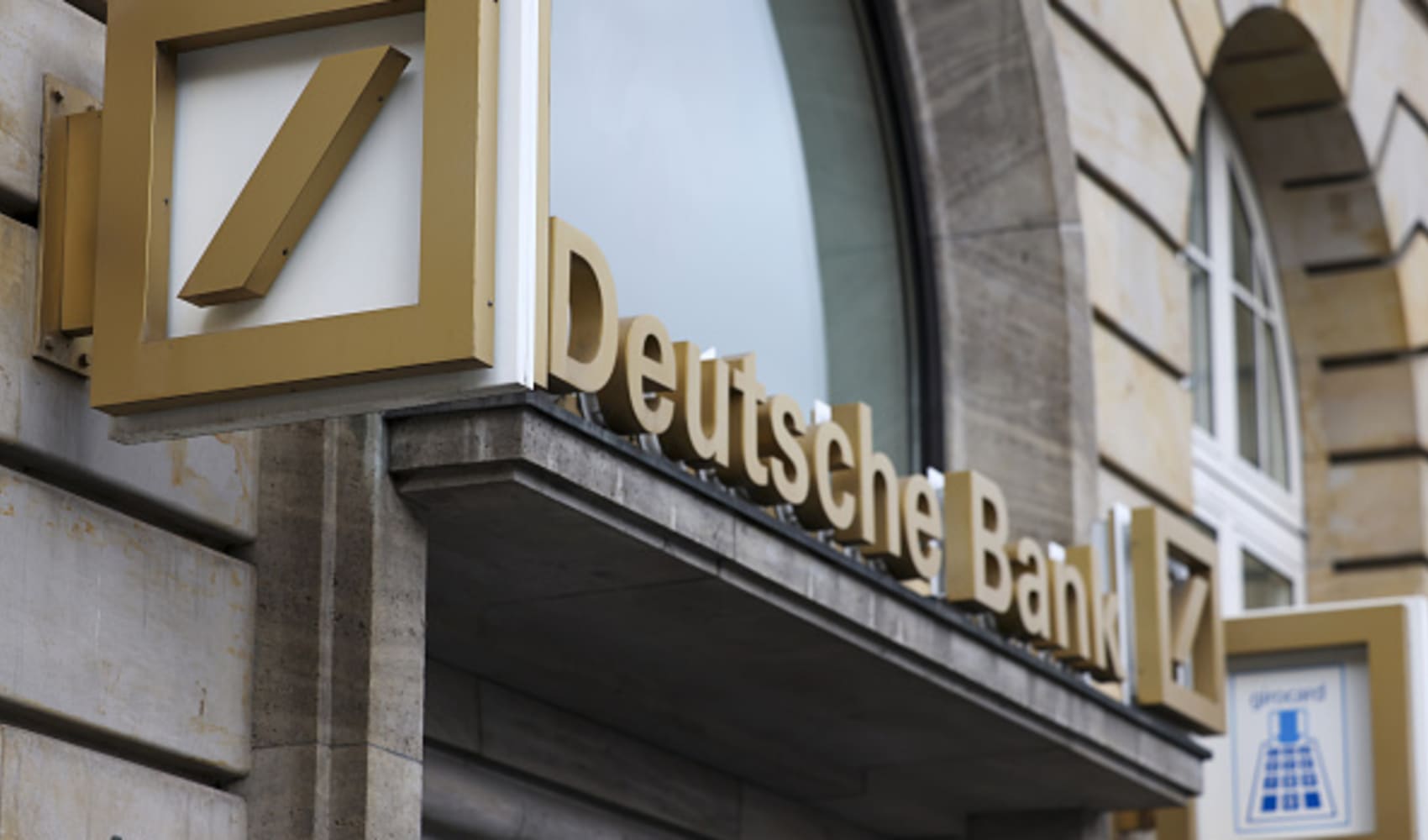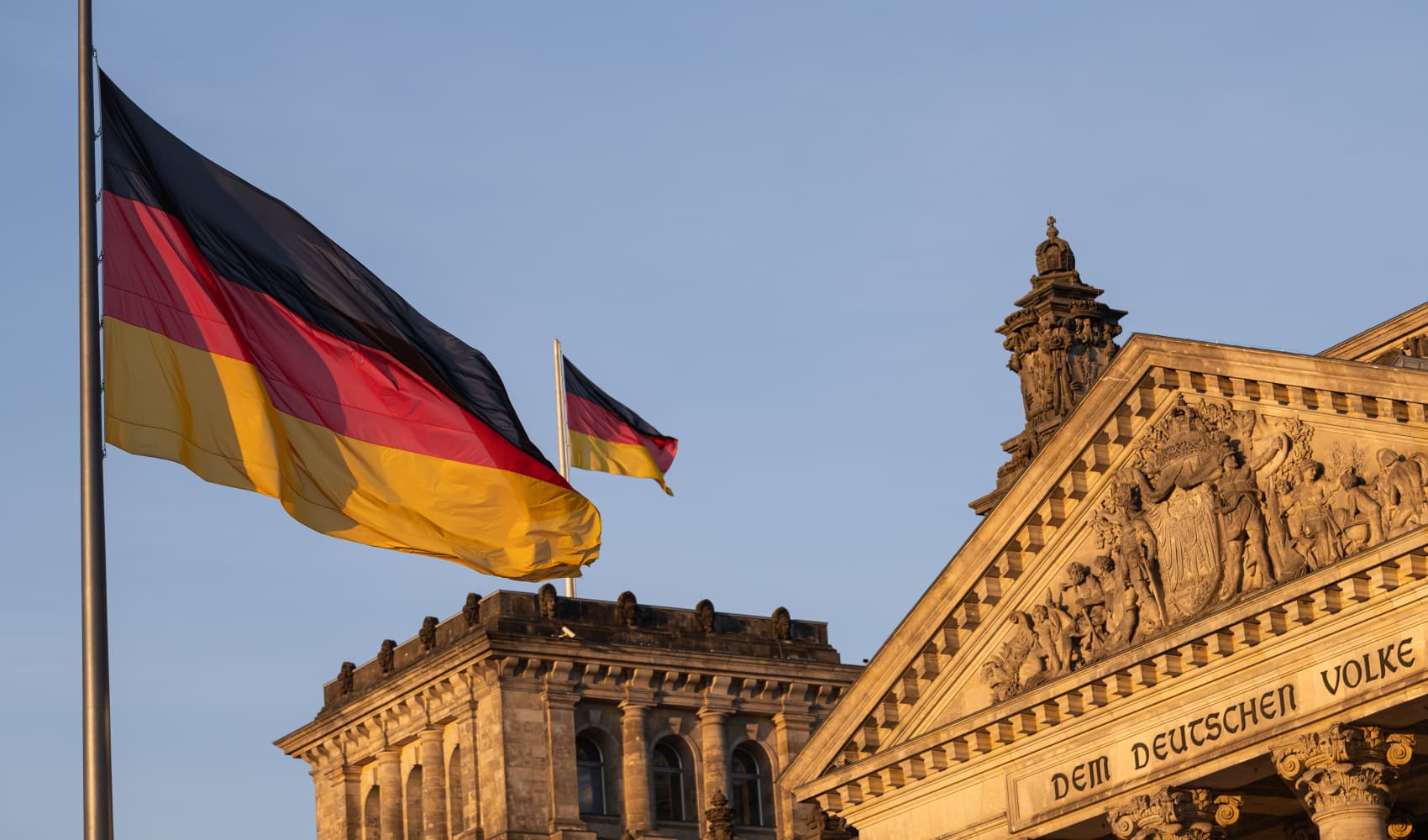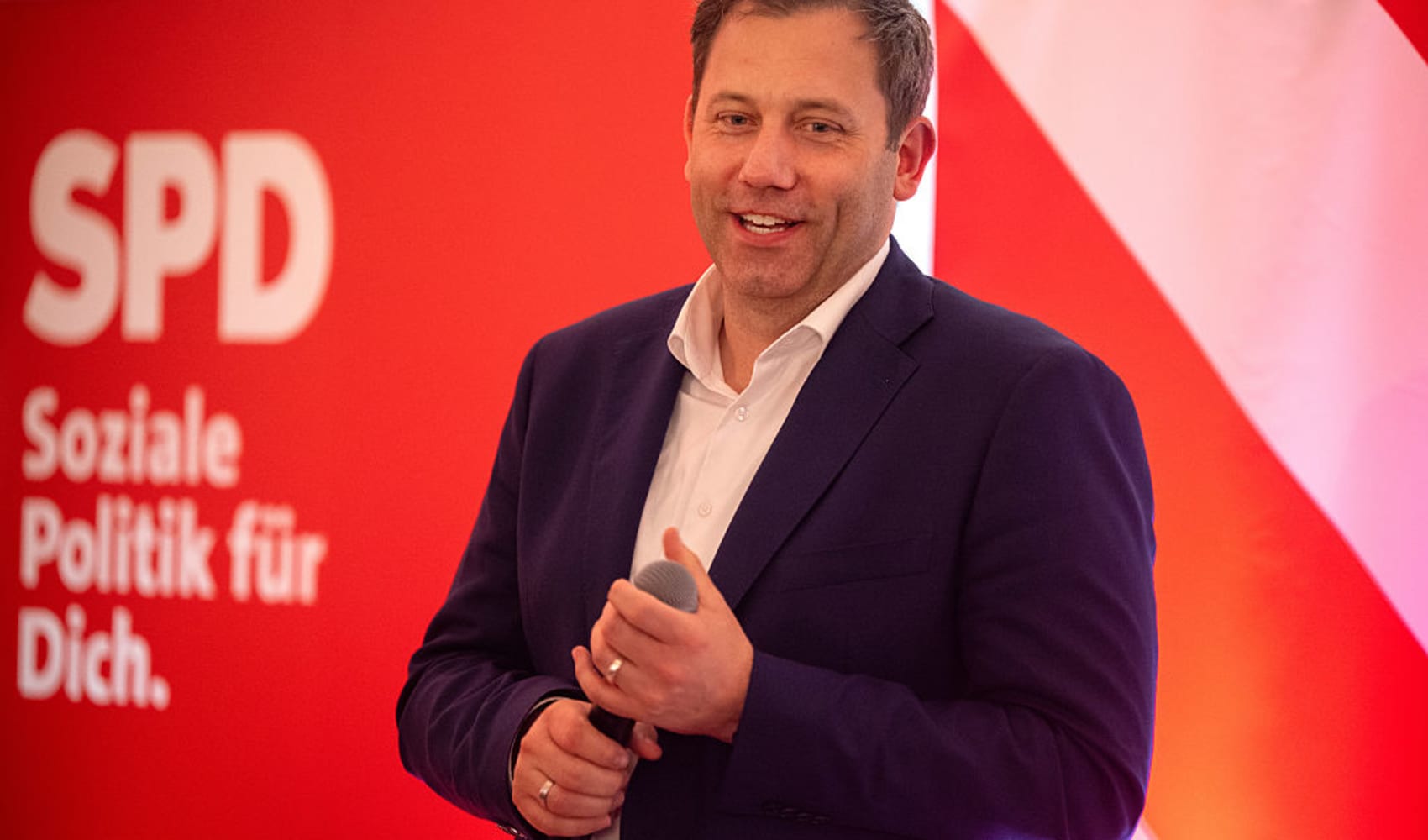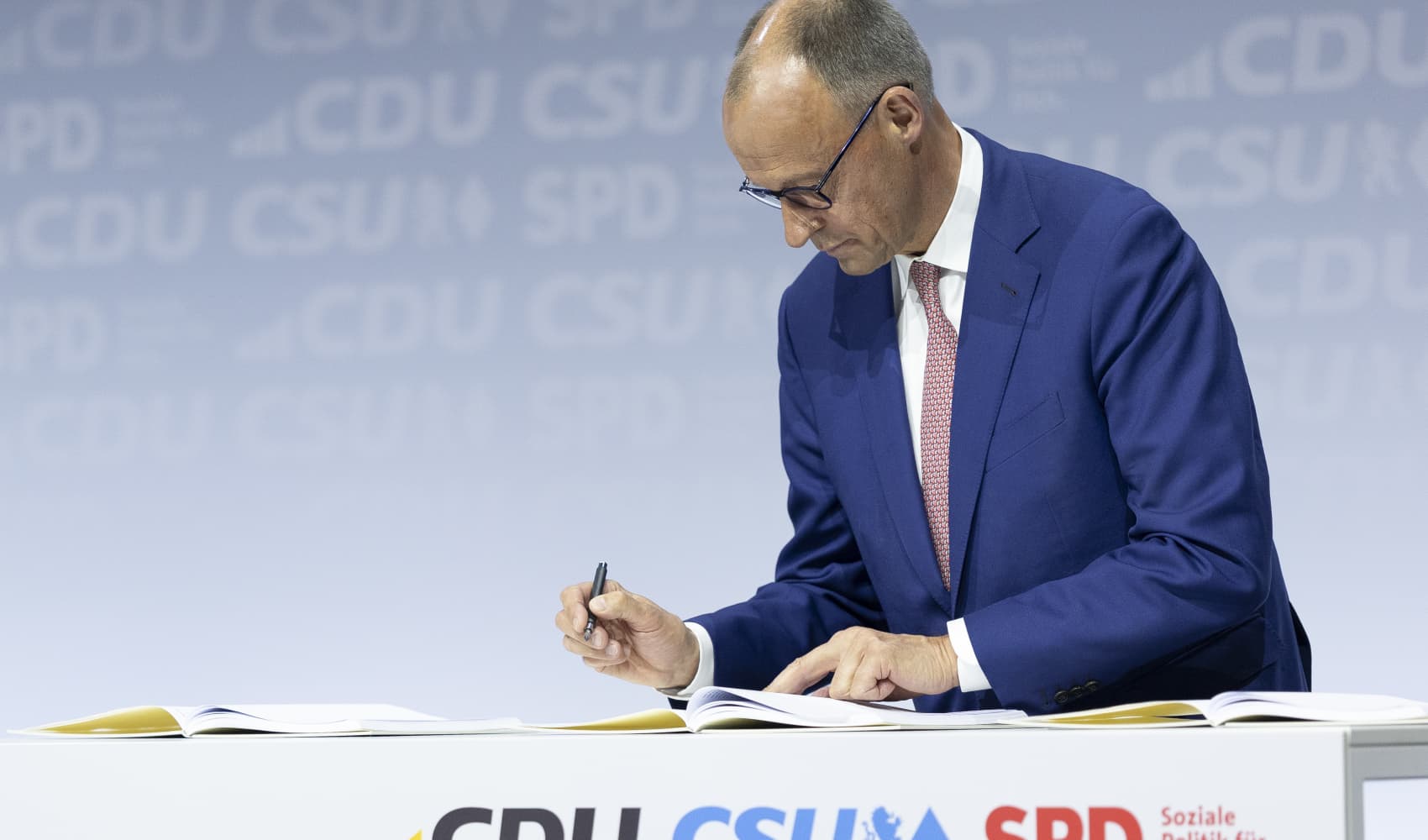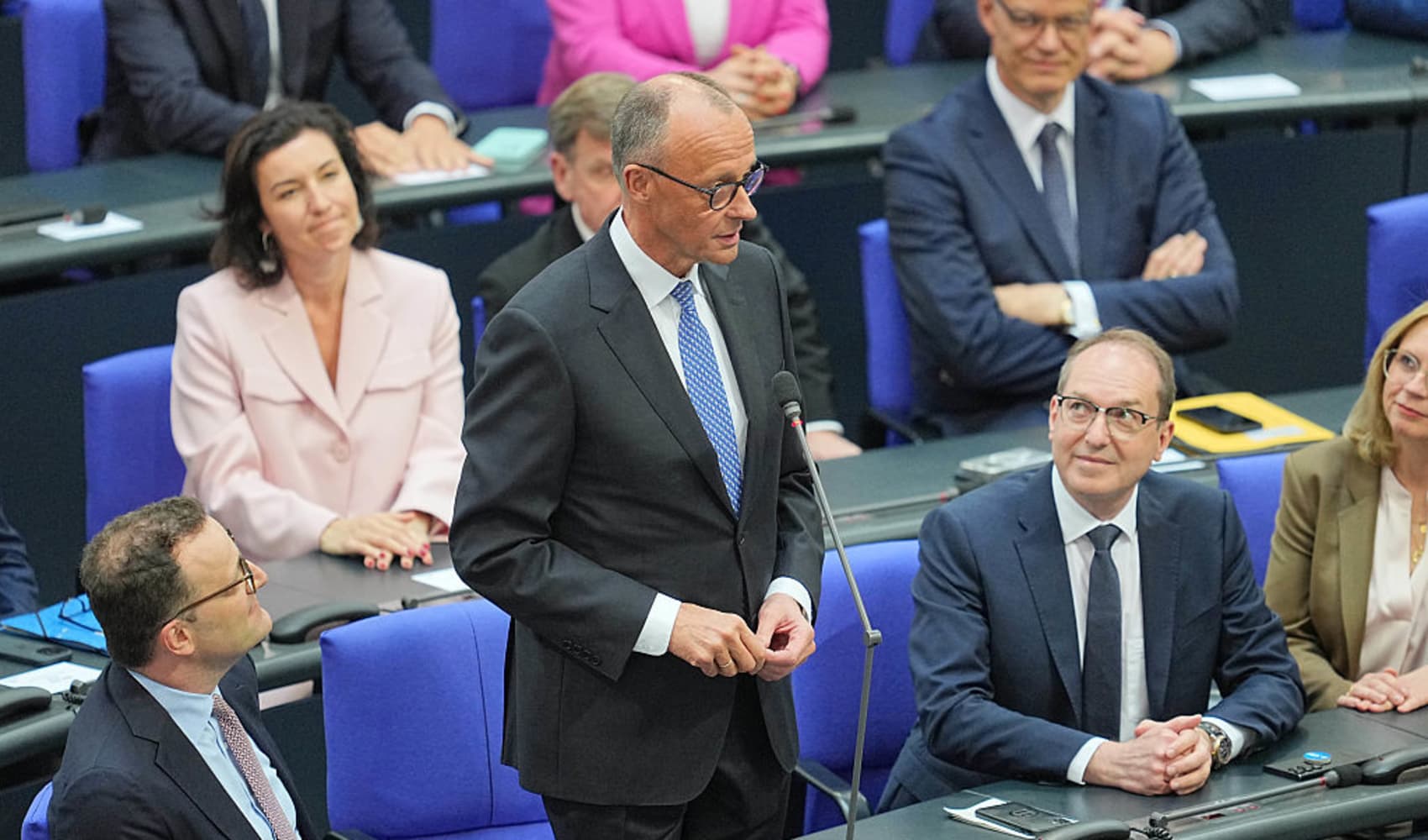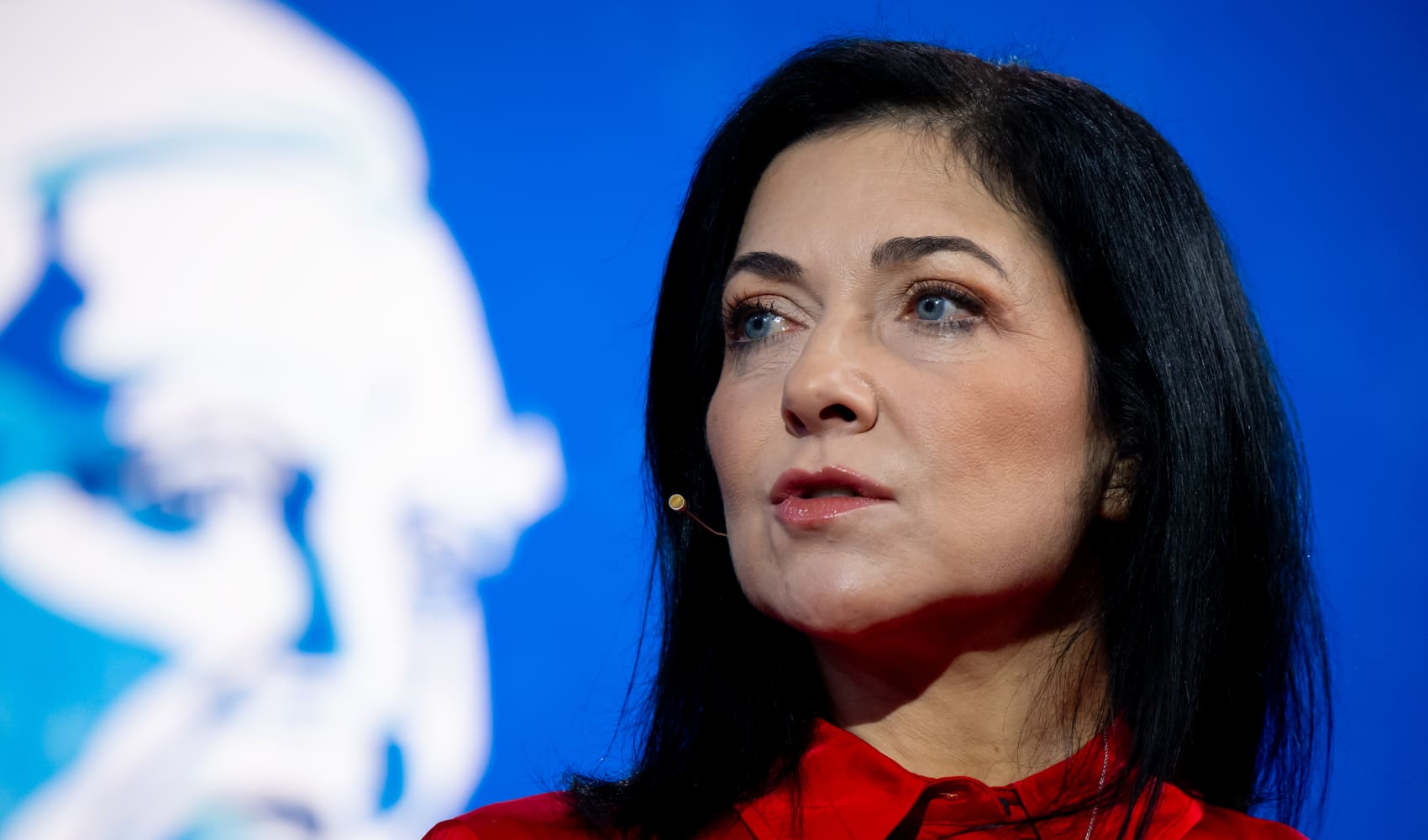Deutsche Bank Profit Up 39%: Can It Last?
Deutsche Bank Soars: 39% Profit Jump Amidst Tariff Tensions!
Introduction: A Phoenix from the Ashes?
Deutsche Bank, Germany's behemoth of lending, just dropped a bombshell: a 39% surge in profit! In a world where financial news often feels like a rollercoaster, this is a definite climb. But what's fueling this impressive ascent, and is it sustainable? This article dives deep into Deutsche Bank's Q1 performance, exploring the drivers behind the profit jump, the looming shadow of U.S. tariffs, and what it all means for the future of this iconic institution.
Deutsche Bank's Q1: A Detailed Overview
Germany’s largest lender, Deutsche Bank, unveiled first-quarter profits that exceeded expectations on Tuesday, a welcome surprise amidst the wider economic uncertainty stemming from global trade tensions. This robust performance was bolstered by a thriving investment banking sector, which we’ll delve into later. However, the bank also prudently increased its credit provisions, acknowledging the potential risks posed by those very trade tensions. It's a balancing act, a tightrope walk between opportunity and caution.
A Closer Look at the Numbers
Net profit attributable to shareholders reached a staggering 1.775 billion euros ($2.019 billion) in the first quarter. That's a figure that makes you sit up and take notice! Where did this profit come from? Let's break it down.
Investment Banking: The Engine of Growth
Deals and Trading Power
The core investment banking division played a pivotal role, boasting a 10% jump in net revenues. This suggests a strong performance in both deal-making and trading activities. Are they riding a wave of increased mergers and acquisitions? Or are they simply getting smarter with their investment strategies? Perhaps a bit of both.
Christian Sewing's Optimistic Outlook
In a statement accompanying the results, Deutsche Bank CEO Christian Sewing declared that the performance "put us on track for delivery on all our 2025 targets" and marked "our best quarterly profit for fourteen years." That's a bold statement, signaling confidence in the bank's long-term strategy and its ability to navigate the turbulent waters of the global economy. Sewing appears to be captaining the ship with a steady hand, steering towards calmer seas.
U.S. Tariffs: A Cloud on the Horizon
Navigating Trade Turbulence
While the profit jump is undoubtedly positive, the bank isn't ignoring the elephant in the room: U.S. tariffs. These policies, often unpredictable and disruptive, can ripple through the global economy, impacting everything from supply chains to consumer demand. How prepared is Deutsche Bank for potential fallout?
Credit Provisions: Planning for the Worst?
In response to the tariff uncertainty, Deutsche Bank increased its credit provisions. What exactly does this mean? It's essentially setting aside more money to cover potential loan losses. Think of it as building a financial buffer against future shocks. Are they expecting a wave of defaults? Not necessarily, but they're certainly preparing for one.
The European Economic Landscape
Challenges and Opportunities
Deutsche Bank's success is intrinsically linked to the health of the European economy. As Europe's largest economy, Germany plays a crucial role in the region's overall performance. What are the key challenges and opportunities facing European businesses, and how is Deutsche Bank positioned to capitalize on them?
Competition in the Banking Sector
Deutsche Bank isn't operating in a vacuum. It faces fierce competition from other global banks, each vying for market share and client loyalty. How does Deutsche Bank differentiate itself from its rivals? What are its unique strengths and weaknesses?
Technological Innovation: The Future of Banking
Embracing Digital Transformation
The banking industry is undergoing a rapid digital transformation. Fintech companies are disrupting traditional models, and customers are demanding more convenient and personalized services. How is Deutsche Bank embracing technological innovation? Are they keeping pace with the latest trends, or are they falling behind?
Sustainability and ESG Investing
Environmental, Social, and Governance (ESG) factors are becoming increasingly important to investors. Companies are being scrutinized for their environmental impact, their social responsibility, and their governance practices. How is Deutsche Bank integrating sustainability into its business strategy? Are they attracting environmentally conscious investors?
Risk Management: A Constant Vigil
Risk management is paramount in the banking industry. Banks must carefully assess and manage a wide range of risks, from credit risk to market risk to operational risk. How effective is Deutsche Bank's risk management framework? Have they learned from past mistakes?
The Regulatory Environment
The banking industry is heavily regulated, and Deutsche Bank must comply with a complex web of rules and regulations. How is the regulatory environment impacting the bank's operations? Are new regulations creating challenges or opportunities?
Geopolitical Factors: A World of Uncertainty
Geopolitical events, such as trade wars, political instability, and international conflicts, can have a significant impact on the global economy and the banking sector. How is Deutsche Bank navigating the current geopolitical landscape? Are they diversifying their operations to mitigate risk?
Deutsche Bank's Long-Term Strategy
What is Deutsche Bank's long-term vision for the future? Where does the bank see itself in five, ten, or even twenty years? Are they aiming to become a global leader in investment banking? Or are they focusing on strengthening their retail banking operations in Germany?
Conclusion: A Promising Turnaround?
Deutsche Bank's 39% profit jump is undoubtedly a positive sign, suggesting that the bank's turnaround efforts are beginning to bear fruit. The strong performance in investment banking is particularly encouraging, but the bank's increased credit provisions highlight the ongoing risks associated with U.S. tariffs and global economic uncertainty. Whether this is a sustainable trend or a temporary blip remains to be seen, but it's certainly a step in the right direction. Ultimately, Deutsche Bank's future success will depend on its ability to adapt to a rapidly changing world, embrace technological innovation, and manage risk effectively. It is a complex situation with many influences that will determine whether Sewing's optimism is well-founded.
Frequently Asked Questions (FAQs)
What is Deutsche Bank's main source of revenue?
Deutsche Bank's main source of revenue is its investment banking division, which generates income through advising on mergers and acquisitions, trading securities, and providing other financial services.
How do U.S. tariffs affect Deutsche Bank?
U.S. tariffs create economic uncertainty, which can impact global trade and investment. This uncertainty can lead to increased credit risk for Deutsche Bank, as businesses may struggle to repay loans if they are negatively impacted by the tariffs.
What are credit provisions and why did Deutsche Bank increase them?
Credit provisions are funds that banks set aside to cover potential loan losses. Deutsche Bank increased its credit provisions in response to the uncertainty created by U.S. tariffs, as a precautionary measure against potential defaults.
Is Deutsche Bank a safe investment?
Deutsche Bank, like any investment, carries risks and rewards. While the recent profit jump is a positive sign, investors should consider the bank's overall financial health, its exposure to geopolitical risks, and the regulatory environment before making any investment decisions. Consult with a financial advisor for personalized advice.
What are Deutsche Bank's 2025 targets?
While the specific details of Deutsche Bank's 2025 targets were not provided within the given article context, Christian Sewing's statement implies that they are aiming to achieve significant improvements in profitability, efficiency, and overall performance by that year. More information on their exact strategic goals would need to be obtained from the bank's official statements.
